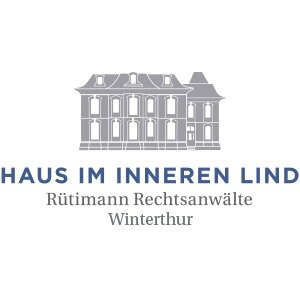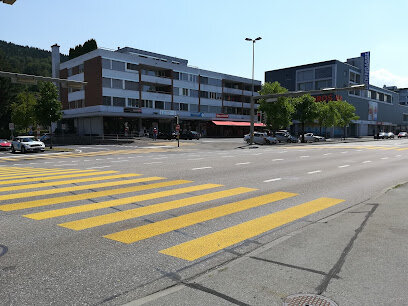Best International Trade Law Lawyers in Switzerland
Share your needs with us, get contacted by law firms.
Free. Takes 2 min.
Or refine your search by selecting a city:
List of the best lawyers in Switzerland
About International Trade Law in Switzerland
Switzerland is a global hub for commerce and trade, thanks to its strategic location, strong economy, and stable political environment. International Trade Law in Switzerland governs the exchange of goods and services between countries and covers a wide range of legal issues such as trade agreements, tariffs, customs regulations, and import/export controls. Switzerland is a member of several international organizations, such as the World Trade Organization (WTO) and the European Free Trade Association (EFTA), which significantly influence its trade policies and regulations.
Why You May Need a Lawyer
Engaging with International Trade Law can be complex, and several scenarios might warrant the need for a lawyer:
Contract Negotiation: Navigating and drafting international trade agreements require expertise to ensure compliance with Swiss and international regulations.
Customs and Tariffs: Disputes or confusion related to tariffs and customs can impact business operations, necessitating legal intervention.
Regulatory Compliance: Ensuring that your business adheres to local and international trade laws can be a complicated task requiring legal expertise.
Dispute Resolution: Handling and resolving disputes arising from international transactions, through litigation or arbitration, may require a lawyer.
Intellectual Property Protection: Securing and defending patents, trademarks, and copyrights in international markets often needs specialized legal assistance.
Local Laws Overview
Switzerland's legal framework for international trade is built on a foundation of sound business practices and adherence to international norms. Key aspects include:
Trade Agreements: Switzerland has entered into numerous bilateral and multilateral trade agreements, which influence its trade policies.
Customs Regulations: Swiss Customs Administration oversees customs procedures, ensuring efficient and lawful import/export processes.
Tax and Duties: Switzerland has a structured tax system that impacts international trade through VAT, duties, and other levies.
Competition Law: Swiss laws promote fair competition and prevent monopolistic practices, affecting international trade dynamics.
Intellectual Property Rights: Strong protection schemes are in place for IP, which is crucial for many international businesses operating in Switzerland.
Frequently Asked Questions
What is the role of the WTO in Switzerland's trade policies?
The WTO provides a framework through which Swiss trade laws are aligned with international standards, facilitating smoother trade operations.
How does Switzerland handle trade disputes?
Switzerland prefers dispute resolution through negotiation or arbitration, in line with international norms and agreements.
Are there import/export restrictions in Switzerland?
Yes, certain goods, such as arms or endangered species, have specific restrictions and require compliance with national and international laws.
What taxes are applicable to international trade in Switzerland?
Businesses may be subject to VAT, customs duties, and other local taxes depending on the nature of their international trade.
How is intellectual property protected in international trade?
Switzerland upholds strong IP laws and is part of international treaties like the WIPO, ensuring IP rights are protected across borders.
What is the process for drafting a trade contract?
It involves negotiation, compliance checks, and legal drafting, requiring expertise to address complexities of international regulations.
How do free trade agreements affect Swiss trade?
Such agreements eliminate or reduce barriers, enhance market access, and provide frameworks for smoother trade relations.
What role does the EFTA play in Swiss trade?
EFTA, of which Switzerland is a member, negotiates trade agreements with global partners, enhancing Swiss trade opportunities.
How can businesses ensure compliance with trade laws?
Regular consultations with legal experts, staying informed on law changes, and conducting compliance audits can ensure adherence.
Is Swiss arbitration recognized internationally?
Yes, Swiss arbitration is highly regarded, with proceedings often conducted under the Swiss Rules of International Arbitration.
Additional Resources
For those seeking further guidance, consider exploring these resources:
Swiss Customs Administration: Offers detailed information on customs procedures and requirements.
State Secretariat for Economic Affairs (SECO): Provides updates on trade policies and agreements.
Federal Institute of Intellectual Property: A key authority on IP rights in Switzerland.
World Trade Organization (WTO): Offers insights into global trade regulations affecting Switzerland.
Next Steps
If you need legal assistance in International Trade Law in Switzerland, consider the following steps:
Identify Your Needs: Clearly outline the legal issues you face to determine the type of expertise required.
Research Professionals: Look for law firms and attorneys specializing in International Trade Law in Switzerland.
Consultation: Schedule initial consultations to discuss your case and understand potential legal strategies.
Engage a Lawyer: Choose a qualified lawyer or law firm who offers a good fit for your needs and budget.
Stay Informed: Keep abreast of any changes in trade laws and regulations that might impact your case or business.
Lawzana helps you find the best lawyers and law firms in Switzerland through a curated and pre-screened list of qualified legal professionals. Our platform offers rankings and detailed profiles of attorneys and law firms, allowing you to compare based on practice areas, including International Trade Law, experience, and client feedback.
Each profile includes a description of the firm's areas of practice, client reviews, team members and partners, year of establishment, spoken languages, office locations, contact information, social media presence, and any published articles or resources. Most firms on our platform speak English and are experienced in both local and international legal matters.
Get a quote from top-rated law firms in Switzerland — quickly, securely, and without unnecessary hassle.
Disclaimer:
The information provided on this page is for general informational purposes only and does not constitute legal advice. While we strive to ensure the accuracy and relevance of the content, legal information may change over time, and interpretations of the law can vary. You should always consult with a qualified legal professional for advice specific to your situation.
We disclaim all liability for actions taken or not taken based on the content of this page. If you believe any information is incorrect or outdated, please contact us, and we will review and update it where appropriate.
Browse international trade law law firms by city in Switzerland
Refine your search by selecting a city.














